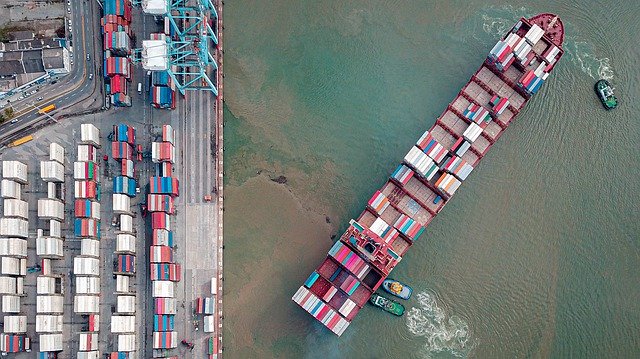

The Department of Transportation (DOTr) has just released procedures on handling shippers’ complaints against domestic and international shipping lines.
The Rules of Procedure mandates the newly established Shippers’ Protection Office (SPO) to protect domestic and international shippers against “unreasonable fees and charges imposed by domestic and international shipping lines.”
READ: Shippers’ Protection Office created to handle complaints on shipping line charges
The office will look into “all complaints and issues related to the rates, charges, practices and operations of international and domestic shipping lines in the country.”
Under the rules, proceedings should be non-litigious and summary in nature. The SPO should not be bound by technical rules of procedure and evidence, but expeditiously evaluate and draft recommendations on complaints.
The SPO is under the Philippine Ports Authority (PPA) and headed by PPA’s general manager as chair and with the administrator of the Maritime Industry Authority (MARINA) as vice chair. The SPO Secretariat is headed by PPA’s Port Operations and Services Department (POSD).
The SPO may also issue general or specific procedural directions at any time, including before or during any proceeding.
If no provision under the Rules or as may be promulgated by the SPO applies, the relevant provisions of the Rules of the Court of the Philippines and relevant jurisprudence may be applied to speed up disposition of complaints.
The rules on admissibility of electronic evidence should apply unless the Rules specifies otherwise.
Initiating a complaint
Under the Rules, a shipper (complainant) or its duly authorized representative may initiate action by filing a complaint against another party, to be called the “party complained of.”
The complainant must file either a notarized complaint or accomplished and notarized complaint form in duplicate, accompanied by supporting document/s as well as the affidavits of witnesses, if any.
A complaint may also be withdrawn at any time by informing the SPO in writing and citing the reason/s for the withdrawal. Within five calendar days from filing of the withdrawal of complaint, the SPO should acknowledge it, and the case will then be considered closed and terminated.
Complaints may be sent to the SPO at 3rd Floor, POSD, PPA Head Office Building, Bonifacio Drive, South Harbor, Port Area, Manila, or through electronic mail at shippersprotectionoffice@ppa.com.ph.
Within five calendar days of receiving a complaint, the SPO should conduct a preliminary evaluation to determine if it should act on the complaint.
If the cause of action falls within the jurisdiction of a particular government agency or entity, the SPO should endorse or refer the complaint and forward it to the appropriate agency, copy furnished the complainant.
If the complaint is recognized by the SPO, the person complained of will be furnished a copy and instructed to submit a comment or opposition, together with supporting documents, within 10 calendar days from receipt.
The comment or opposition should set forth admissions and/or defenses, including a counteroffer to settle or enter into a compromise, if any.
Should the party complained of fail to file the required comment/opposition within the prescribed period, this shall be considered a waiver, and the complaint will be deemed submitted for disposition and recommendations, unless a clarificatory conference is deemed by the SPO to be necessary.
A clarificatory conference is a meeting between the complainant and the party complained of before the complaints officer of SPO in order to clarify facts, issues, willingness to enter into a compromise agreement, or other matters as may aid the prompt and just resolution of the case. The clarificatory conference may be conducted before the complaints officer or through any virtual meeting platform agreed upon by the parties.
The complaints officer should submit an evaluation report to the SPO within 15 calendar days from receipt of the comment/opposition from the person complained of, or from the date of any clarificatory conference conducted. The evaluation should also include the findings and recommendations.
Making a compromise
All complaints brought under the Rules may be the subject of compromise, except violations not subject to compromise under the law.
During the proceeding, any party may submit in writing an offer of compromise, signed by the parties and duly notarized. The SPO should note the compromise agreement and consider the case closed and terminated.
The evaluation report prepared by the complaints officer should be submitted to the SPO chairperson and members for consideration and approval. The approved evaluation report will be the recommendation of SPO to the parties.
The SPO Secretariat should then serve copies of the recommendation to the parties and appropriate agency of government within five calendar days from its approval.
The Rules of Procedures are in keeping with DOTr Department Order (DO) No. 2020-008 dated June 24, which created the SPO to protect the public during a state of national calamity “from the impact and effects of exorbitant and unreasonable shipping fees resulting in increased prices for domestic consumers.”
The Rules also notes the SPO is “a temporary emergency measure to protect people from the impact and effects of exorbitant and unreasonable shipping fees resulting in increased prices for domestic consumers in this pandemic.”
The Rules took effect on September 3 but approved by Transportation Secretary Arthur Tugade and signed by representatives of concerned agencies on August 12.
Port users and stakeholders have long been requesting government to oversee operations and charges of international shipping lines. Currently, no government agency has direct jurisdiction over international shipping lines, although the liners’ agents/local offices are required to register with MARINA and to follow Customs and tax rules.
In 2019, there were attempts to regulate local shipping charges through a joint administrative order, but this was replaced by a plan for the issuance of an executive order. There are bills at the House of Representatives pushing for swift passage of a measure seeking to regulate foreign shipping lines’ charges to cut costs for importers and bring down prices of consumer goods.
Domestic shipping lines, while deregulated under the Domestic Shipping Act of 2004, are still under the jurisdiction of MARINA. – Roumina Pablo




